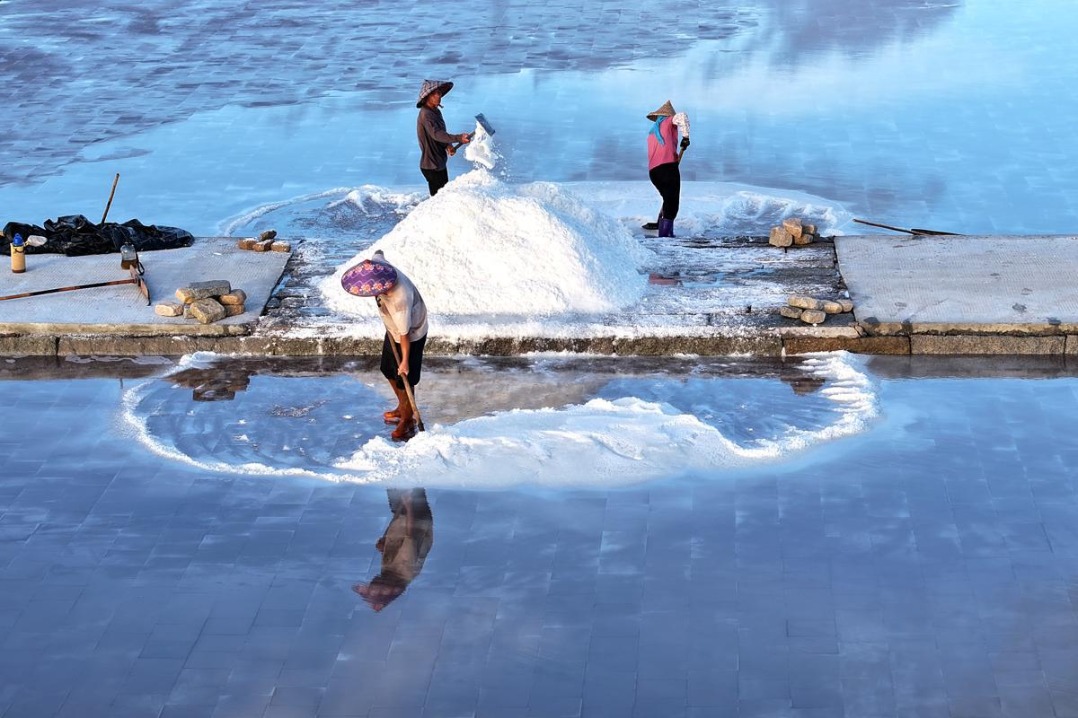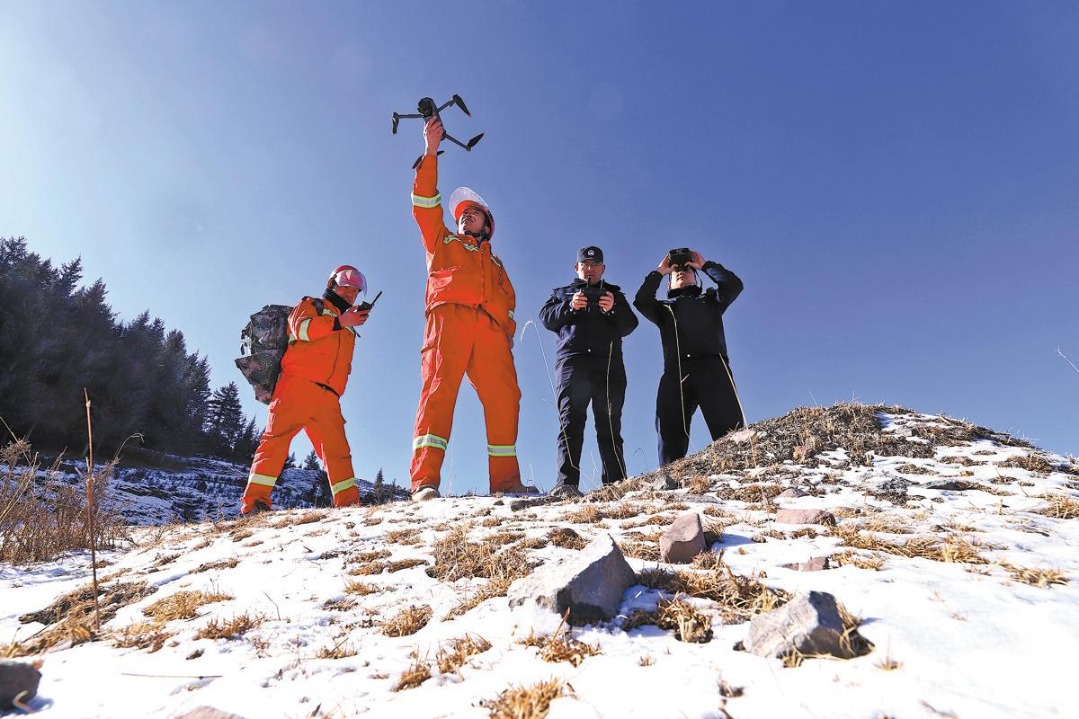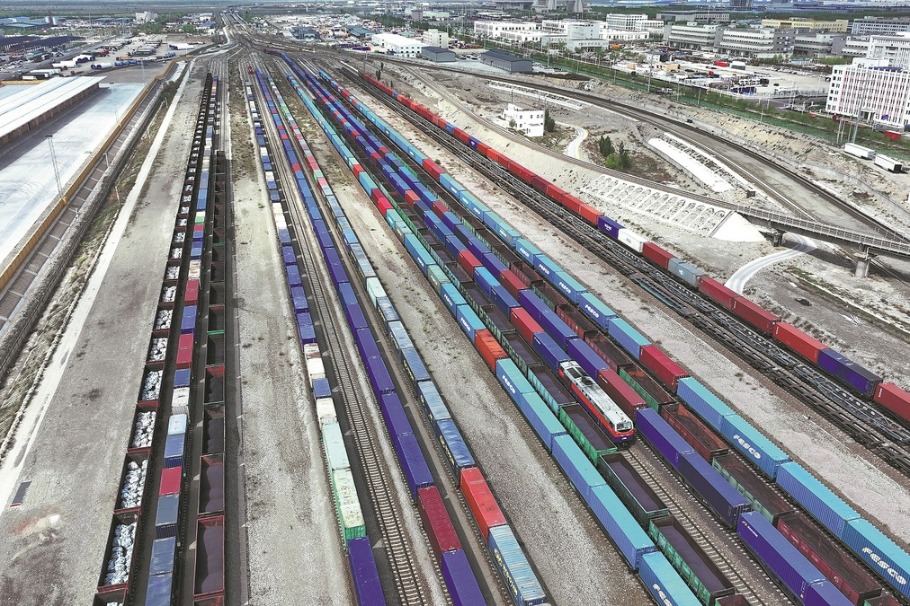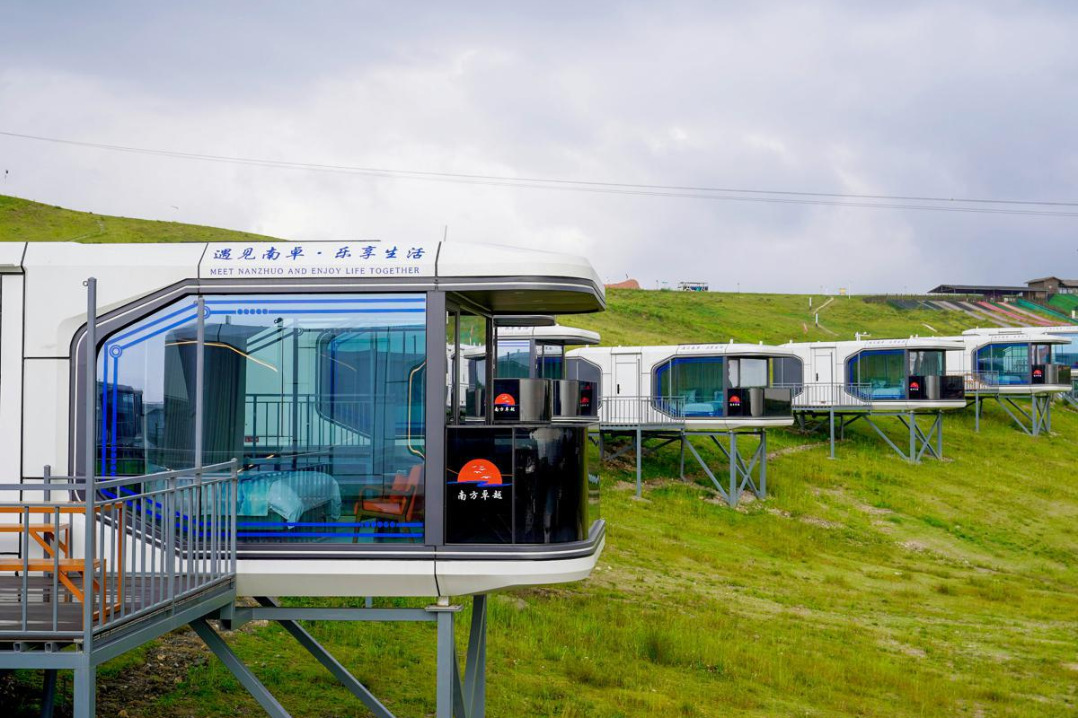Preparations begin for Spring Festival travel rush


A plan was issued late Tuesday to ensure the smooth and safe movement of people and freight during next month's Spring Festival travel rush, implementing eased epidemic control measures for travelers and encouraging flexible and off-peak leave for holidays to reduce pressure on what is estimated to be a significant increase in passenger trips.
China will downgrade management of COVID-19 starting from Jan 8, dropping measures such as closed-loop transportation and centralized quarantine targeting inbound travelers. This will occur at almost the same time as the 40-day Spring Festival travel rush, which begins on Jan 7 and ends on Feb 15.
Epidemic measures for travel were optimized earlier this month.
The new measures are expected to lead to an increase in cross-regional passengers and freight, according to the plan issued by the State Council, China's Cabinet.
Service providers are required to implement the latest measures; travelers no longer need negative nucleic acid test results or health codes, are not required to undergo nucleic acid testing or health inspection upon arrival, and will not have their temperatures checked.
The plan also states that suspending or limiting public transport, or hindering the movement of vehicles and vessels is forbidden.
Road checkpoints are to be removed, and public transport services suspended due to epidemic control should have regular operations restored promptly.
Local governments are urged to study and implement the policy to allow flexible holiday leave to reduce the pressure of mass travel. Universities are urged to avoid starting the new semester during the travel rush to ensure returning students don't add to mass travel.
Spring Festival will fall on Jan 22 and travel usually peaks before and after the seven-day holiday.
The plan also aims to improve freight transport efficiency, dropping requirements such as the need for negative nucleic acid tests and health codes for truckers and sailors. Nucleic acid testing upon arrival is no longer required for cross-regional truckers.
Limiting transport service in any form and shutting down transport and logistics facilities without authorization is banned.
The plan also stressed the importance of epidemic control and safety issues during the rush.
Service providers must inspect transport facilities to avoid risks. Attention should also be paid to avoid other potential risks such as rusty driving skills.
China's Spring Festival travel rush was the biggest annual human migration in the world for decades. In 2019, prior to the COVID-19 outbreak, nearly 3 billion trips were made in the 40-day period.
Since 2020, people have been encouraged to stay put during the festival to avoid infection and transmission.
During the last festival, just 1.05 billion trips were made, compared to 870 million in 2021, and 1.5 billion in 2020.
As a result of fewer passengers, transport hubs were quieter. Some restaurants and shops at airports and railway stations closed due to the lack of business over the past three years.
As optimized measures have been introduced, transport hubs are gradually resuming their hustle and bustle.
Zhang Qin, who works in electrical communication, took annual leave to take his sons from Beijing to Nanchang in Jiangxi province on Monday. He planned the visit to his hometown before the rush. The two boys — aged 3 and 5 — have been at home for more than a month due to the epidemic.
"They have not traveled for a while," the father said, adding that the boys are excited to ride a train again.
Railway staff have also seen a rise in the number of passengers as more high-speed services are introduced and epidemic controls have eased.
"Because of the epidemic, there were fewer passengers in the past few years, but more are being seen recently as epidemic measures ease and faster services are offered between Beijing and Shijiazhuang, which now only takes an hour," said Li Wei, head of duty at Shijiazhuang Railway Station in Hebei province.
Qi Tie, a business traveler heading from Beijing to Shijiazhuang, said it is easier to ride the train now as no nucleic acid tests or health codes are required.
Guo Mingju, who flew from Chongqing to Hainan province recently, said he was finally able to experience the freedom of travel after three years, with no more questions about health or reports required.
Yang Zekun contributed to this story.
- Xi, Tokayev attend ceremony of exchanging cooperation documents
- Zhuhai checkpoints leading to Macao, Hong Kong register 100 million trips
- What the Shenzhou XX astronauts are doing after over 50 days in space
- Beijing-Tianjin-Hebei logistics index hit 52.17% in Q1 of 2025
- Science Talk: Is Red Sun threat rumor or reality?
- 6 remain missing after fireworks factory blast in Hunan, 1 dead






































